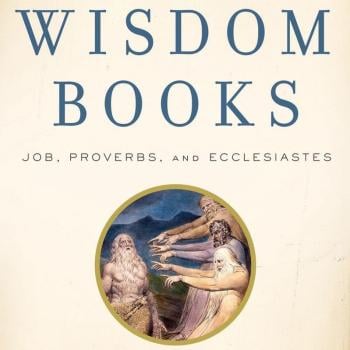Beginning today, and continuing for some days to come, we will be doing both a review of the important recent book by my friends and colleagues Ken Collins and Jerry Walls, entitled Roman but not Catholic. What Remains at Stake 500 Years after the Reformation (Baker, 2017, 432 pp. $20). This book is important for a variety of reasons, and one of the things I find most interesting about it is that it reveals the same problems with Roman Catholics that I critiqued Evangelical Protestantism for in my book The Problem with Evangelical Theology (now in a 2nd edition). It may be remembered that one of the most salient points I made is that when a faith tradition seeks to say something distinctive, something that sets it apart from the body of Christ universal in its core orthodox affirmations, setting it apart from other major denominational traditions, that is precisely where that tradition has the very least Biblical backing (or in some cases no solid Biblical support at all).
For example, when the Roman Catholic Church claims that it is ‘the one true church apostolic and universal’ (leaving out both all the Orthodox tradition and all the Protestant traditions), and that it is the preserver of the one true apostolic tradition, these are precisely the sort of exclusivistic claims that cannot be support from Scripture, any more than say the claim by some Protestants that unless you speak in tongues you are not a Spirit-filled Christian. It cannot be an accident that when such exclusivistic claims are made, either about theology, or ethics, or praxis, they always have to be made: 1) by doing exegetical gymnastics with what the Bible actually says and teaches; and/or 2) are made on the basis of later traditions which are anachronistically read back into the Bible but in fact are not to be found there. This is not just a Protestant problem, it is also a Catholic and Orthodox problem, and it involves the serious mistake of anachronistic readings of the Bible, whereas the first principle of Biblical interpretation must be that a text, not read in light of its original context, just becomes a pretext for whatever one wants it mean today, and distortion inevitably follows.
One other preliminary remark that needs to be stressed at this juncture is that my own view is that the body of Christ consists of all genuine Christians everywhere, whatever their particular denominational affiliation. If we want to affirm ‘the one true church apostolic and universal’ then what that must mean is not this or denominational expression of the church, but rather all genuine Christians who affirm the Bible as God’s Word and perhaps in addition the earliest ecumenically recognized creeds— the Apostolic and Nicene creeds for example. It is time for the myth that this or that denomination is THE church to die. The church, in all its expressions, even at its best is made up of flawed human beings, who have created various flawed traditions along the way, often traditions not well grounded in Scripture. This is just as true of Protestants as Catholics or the Orthodox. The head of the church is Christ himself (not ever some particular merely human minister or leader) and he alone is perfect, and makes perfect judgments on all things. We frankly do not. Indeed, all genuine Christians need all other genuine Christians to help them see their flaws in the way they do church, and how they live in fellowship with one another. A genuine ecumenism cannot privilege this or that particular Christian tradition as ‘the one true apostolic tradition’ not least because, historically speaking, it is simply not true. God’s Word and the work of his Spirit is always trustworthy and true. God’s church has always fallen short of being perfect, or even being in perfect conformity with the Word of God. If one asks the question— how can the head of the body of Christ (Christ himself) be perfect, and yet his body be so imperfect even in its oldest forms, the answer is of course that God only has fallen human beings to work with, and none of them are infallible, none of them fall outside the boundary of the term ‘sinner’. Take an analogy. Blaise Pascal was one of the greatest Christian thinkers of all time. His Pensees should still be required reading for Christians. He only lived to age 39, and the last years of his life he was very ill indeed. Yet in that same period we have some of his most profound Christian reflections on life. The body was not well, but the mind of the one who was recognized as a child prodigy and a genius all through life, was still working very well. God had preserved him until he fulfilled his calling, despite having a weak and disease ridden body.
I take this as something of a parable of the church, which at various periods of its life has been not only weak and troubled, but full of misunderstanding of and disagreements about the Gospel and its implications. It is after all the preservation of the genuine apostolic tradition by the Holy Spirit in the church, the very Word of God enshrined in Scripture and some of the creeds which is the elixir of life, the faithful sharing and preaching of which keeps the church alive and in accord with its Head in essential things. It is not the preservation of some particular ecclesiology or continual leadership structure that has been the fulfillment of the promise of Jesus that the gates of Hades will not prevail against his community, it will never die out. Peter was not commended for setting up an all male hierarchy, he was commended for his confession that Jesus is the Messiah, the Son of God.
Finally, I will stress again, as I did in The Problem with Evangelical Theology, nothing can be theologically true that is historically false. The Christian faith has an historical foundation, and in all of the places where theology intersects with history, the history must be read correctly or else the theology will go awry.















